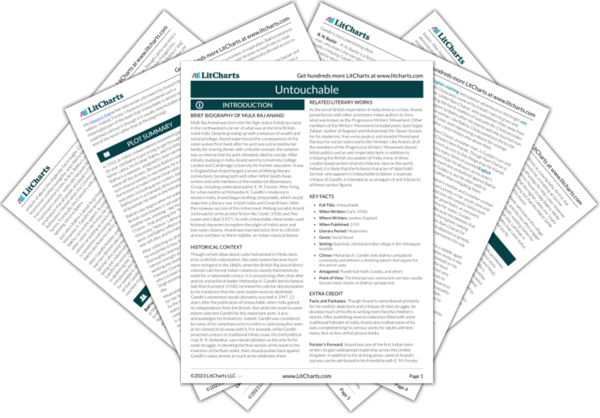R. N. Bashir Quotes in Untouchable
‘It is India's genius to accept all things,’ said the poet fiercely. ‘We have, throughout our long history, been realists believing in the stuff of this world, in the here and the now, in the flesh and the blood. […] We can see through the idiocy of these Europeans who defied money. They were barbarians and lost their heads in the worship of gold. We know life. We know it's secret flow. We have danced to its rhythms. […] We can learn to be aware with a new awareness. We are still eager to learn. We cannot go wrong. Our enslavers muddle through things. We can see things clearly.’
‘When the sweepers changed their profession, they will no longer remain Untouchables. And they can do that soon, for the first thing we will do when we accept the machine, will be to introduce the machine which clears dung without anyone having to handle it - the flush system. Then the sweepers can be free from the stigma of untouchability and assume the dignity of status that is their right as useful members of a casteless and classless society.’

R. N. Bashir Quotes in Untouchable
‘It is India's genius to accept all things,’ said the poet fiercely. ‘We have, throughout our long history, been realists believing in the stuff of this world, in the here and the now, in the flesh and the blood. […] We can see through the idiocy of these Europeans who defied money. They were barbarians and lost their heads in the worship of gold. We know life. We know it's secret flow. We have danced to its rhythms. […] We can learn to be aware with a new awareness. We are still eager to learn. We cannot go wrong. Our enslavers muddle through things. We can see things clearly.’
‘When the sweepers changed their profession, they will no longer remain Untouchables. And they can do that soon, for the first thing we will do when we accept the machine, will be to introduce the machine which clears dung without anyone having to handle it - the flush system. Then the sweepers can be free from the stigma of untouchability and assume the dignity of status that is their right as useful members of a casteless and classless society.’











